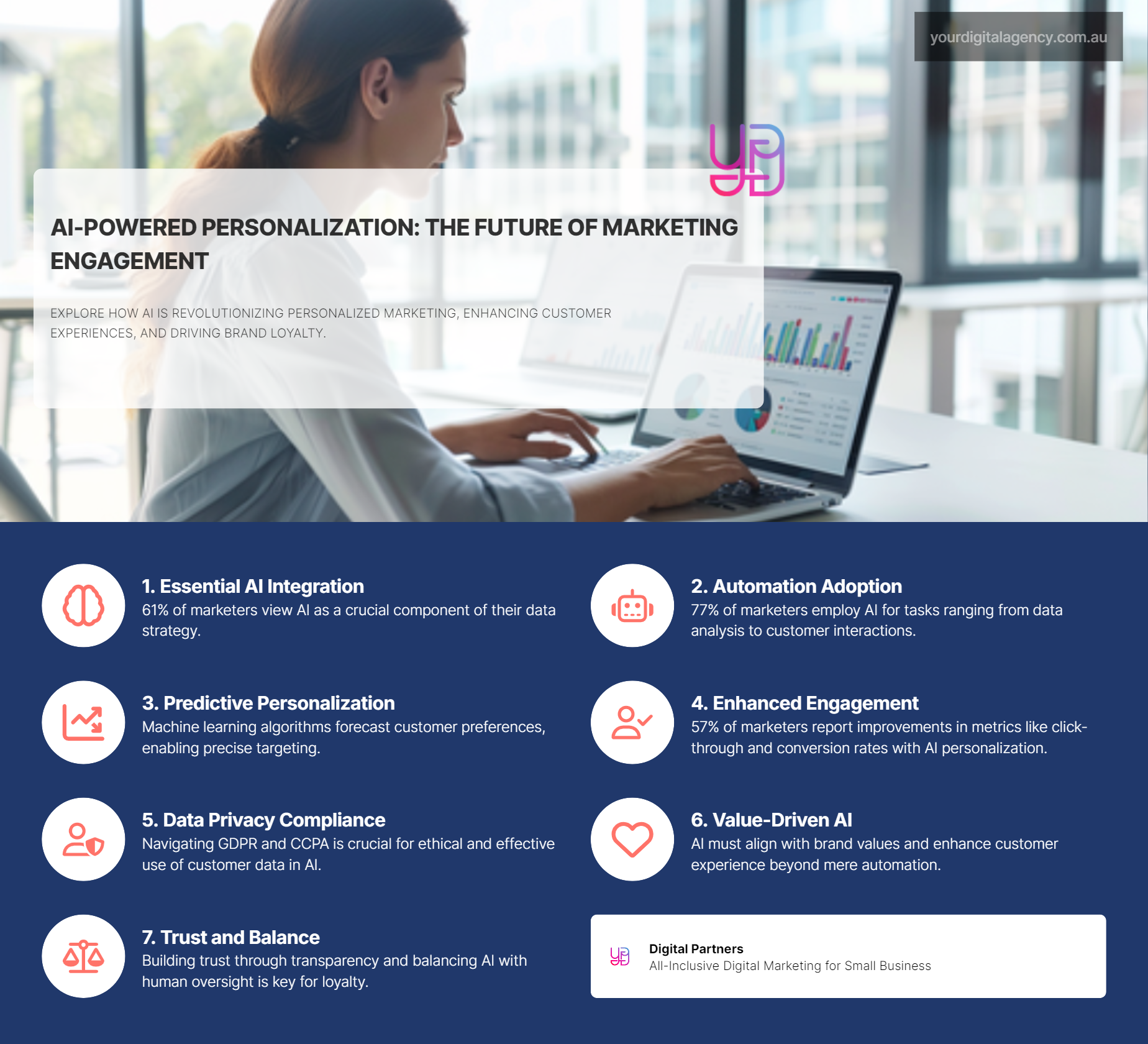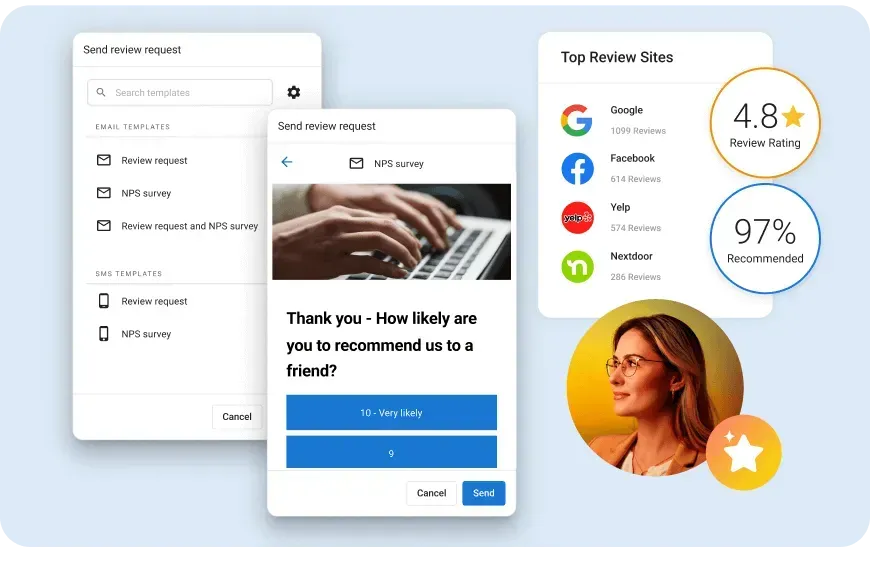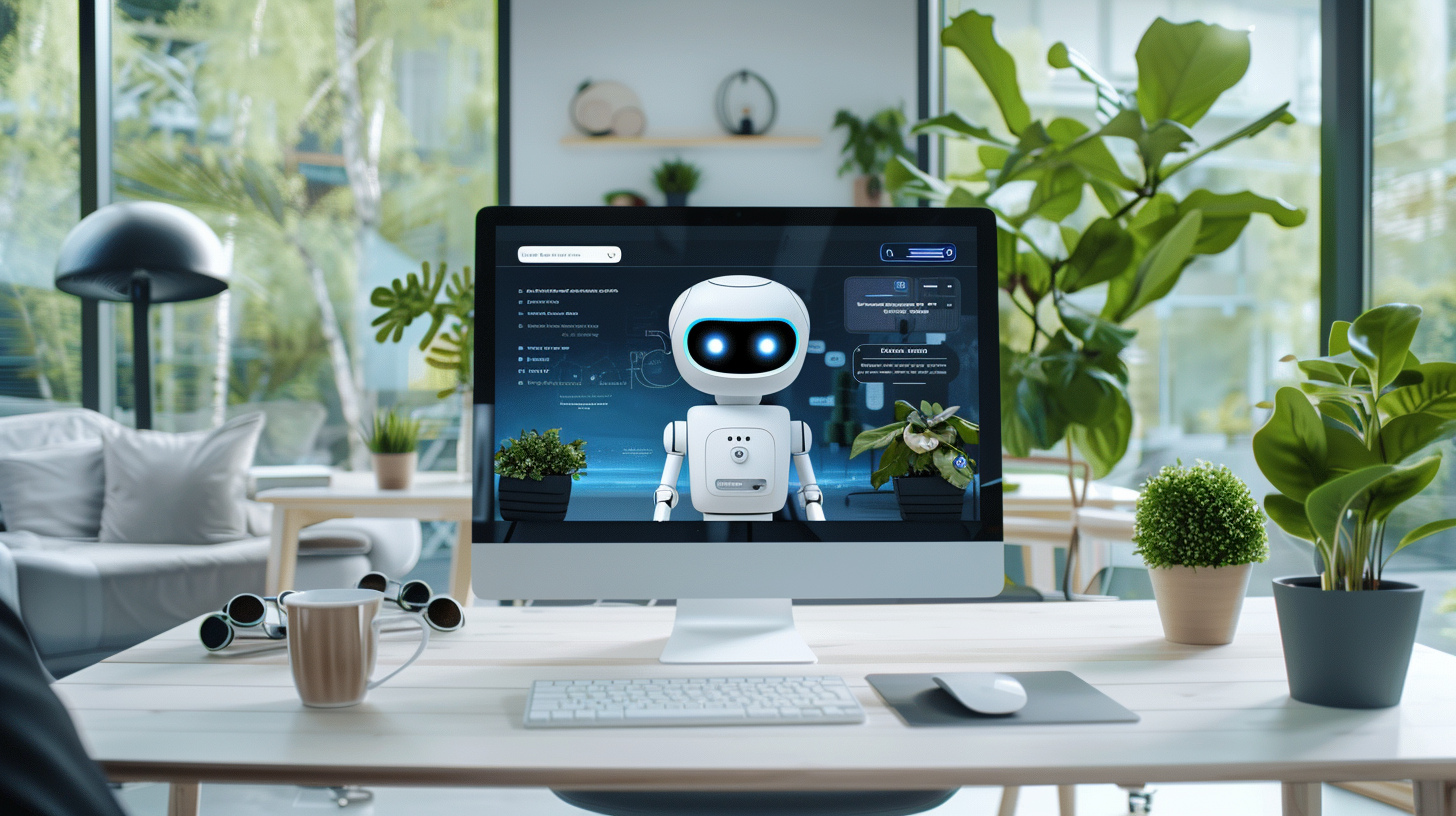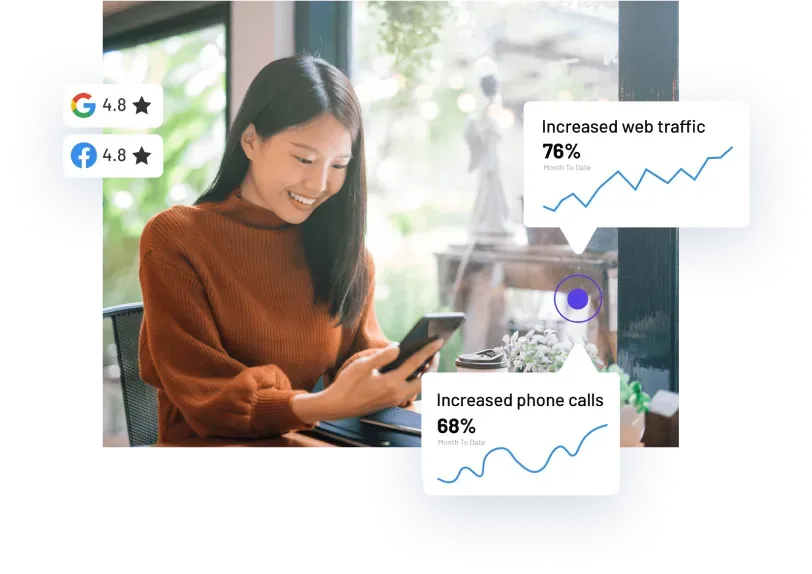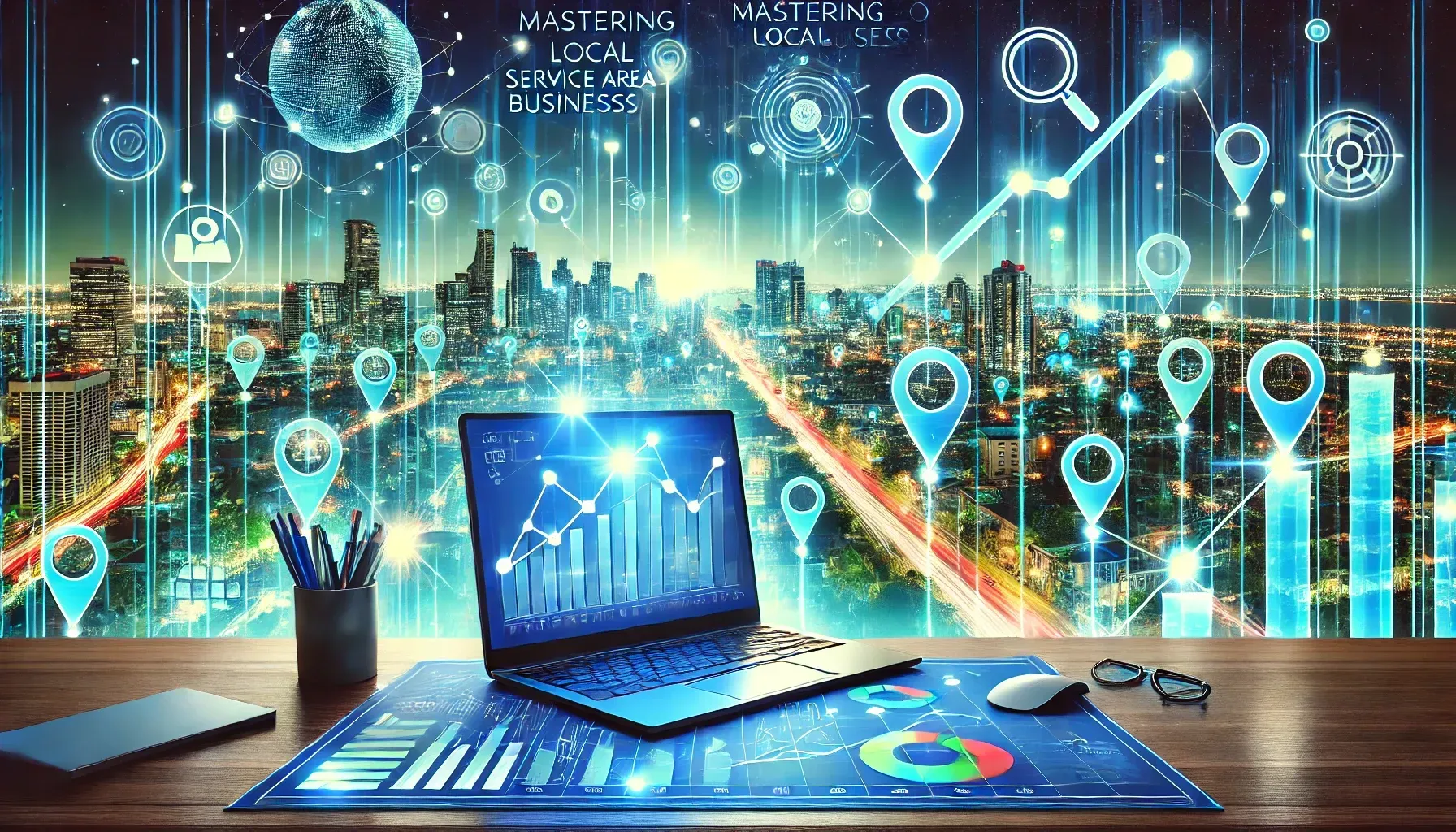THE ROLE OF ARTIFICIAL INTELLIGENCE IN PERSONALIZED MARKETING
What exactly is personalized marketing?
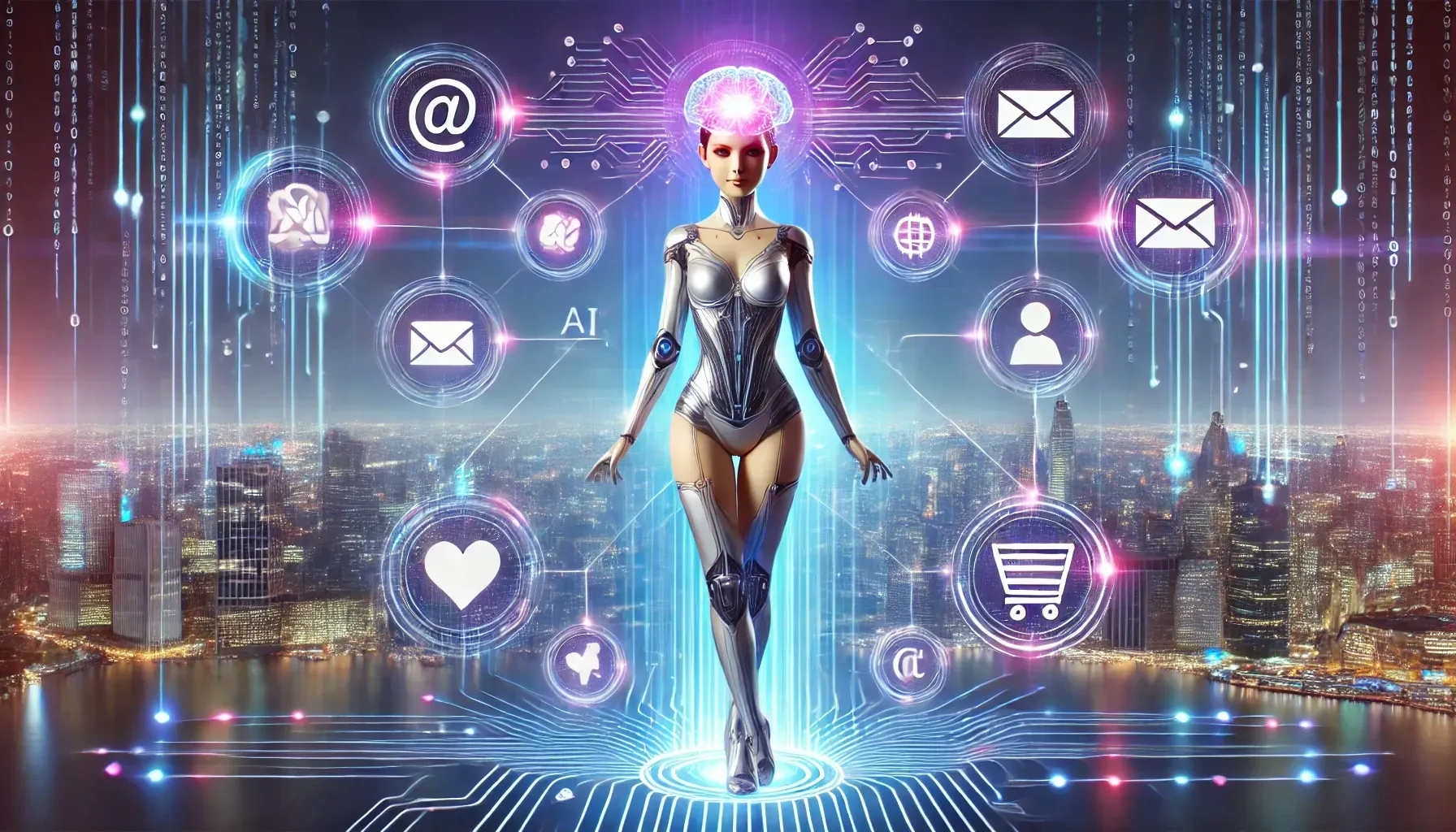
Introduction
As artificial intelligence (AI) weaves its way more deeply into the fabric of marketing strategies, the concept of personalized marketing is becoming less of a luxury and more of a necessity. But what exactly is personalized marketing, and why is it becoming so crucial for businesses to get it right? At its core, personalized marketing uses data to deliver more tailored messages and product offerings to individual consumers, aiming to not only catch their eye but also win their loyalty. But how does AI elevate this approach, and what can marketers gain from its potential?
The integration of AI into marketing involves handling data efficiently and understanding and anticipating the needs of customers on a nearly individual level. How do AI technologies transform large datasets into actionable insights? And what does this mean for the future of customer engagement and brand loyalty? These questions hint at the profound impact AI could have on personalized marketing strategies, shaping how brands interact with their customers in increasingly meaningful ways.
The Current Landscape of AI in Marketing
The integration of AI in marketing strategies is rapidly becoming a fundamental aspect of modern business practices. A significant 61% of marketers now consider AI an essential element of their data strategy, underscoring its pivotal role in shaping future marketing strategies. This reliance on AI is not unfounded; it stems from its ability to streamline operations, enhance decision-making, and provide a more personalized customer experience.
Currently, 77% of marketers utilize AI automation in various capacities, ranging from customer data analysis to automated customer interactions. These technologies are essential tools that drive efficiency and effectiveness in marketing campaigns. The expectation of AI's role in marketing only grows, with 41% of marketers predicting a significant impact on their strategies within the next three years. This anticipation is indicative of the transformative potential AI holds for the marketing industry.
Deep Dive: AI's Role in Enhancing Personalization
AI's capability to process and analyze large datasets is revolutionizing how businesses understand and cater to their customers. By identifying patterns and preferences in customer behavior, AI enables marketers to craft offers and messages that are not just relevant but also timely. For instance, machine learning algorithms can predict customer preferences with high accuracy, leading to more effective targeting and segmentation.
Specific AI tools and techniques, such as predictive analytics and natural language processing, play crucial roles in achieving hyper-personalization. These technologies allow for the dynamic customization of marketing messages, ensuring that each customer receives content tailored to their individual needs and preferences. The impact of these AI-driven personalization strategies is significant, with 57% of marketers observing notable improvements in performance metrics such as click-through rates and conversion rates.
Overcoming Challenges with AI in Personalized Marketing
Despite the advantages, integrating AI into personalized marketing is not without its challenges. Data privacy emerges as a significant concern, with stringent regulations like GDPR and CCPA dictating how customer data can be collected and used. Marketers must navigate these regulations carefully to leverage AI effectively without breaching privacy norms.
Another challenge is ensuring that AI implementations align with brand values and deliver genuine value to customers. It's crucial that AI tools are not just used for automation but are also integrated thoughtfully to enhance the customer experience while maintaining a human touch. Strategies to mitigate these challenges include:
- Ensuring transparency in how customer data is used.
- Investing in AI systems that provide explainable outputs.
- Maintaining a balance between automated processes and human oversight.
These steps help build trust and foster a positive relationship between the brand and its customers, which is essential for long-term engagement and loyalty.
Conclusion: Harnessing AI for Future-Ready Marketing
The integration of AI into personalized marketing represents a significant transformation, reshaping the ways brands engage with their customers. By utilizing AI's capability to analyze extensive datasets, marketers are now creating highly personalized experiences that not only resonate with consumers but also enhance engagement and loyalty. The application of predictive analytics and natural language processing has shown to be particularly effective, allowing brands to offer content that aligns with the unique needs and preferences of each customer. Despite challenges such as data privacy and the necessity for human interaction, the path forward involves a balanced approach that respects consumer rights while utilizing AI's capabilities.
As we look ahead, the role of AI in marketing will continue to expand, becoming an essential component in building meaningful and enduring customer relationships. AI does more than automate; it improves our understanding of customer behaviors and refines our engagement strategies. Let's adopt this technology to not only meet but surpass customer expectations, ensuring our marketing strategies remain dynamic and innovative as the markets we serve.
Remember, the goal is not merely to reach the audience; it's to connect with them, transforming brief interactions into lasting engagements.
